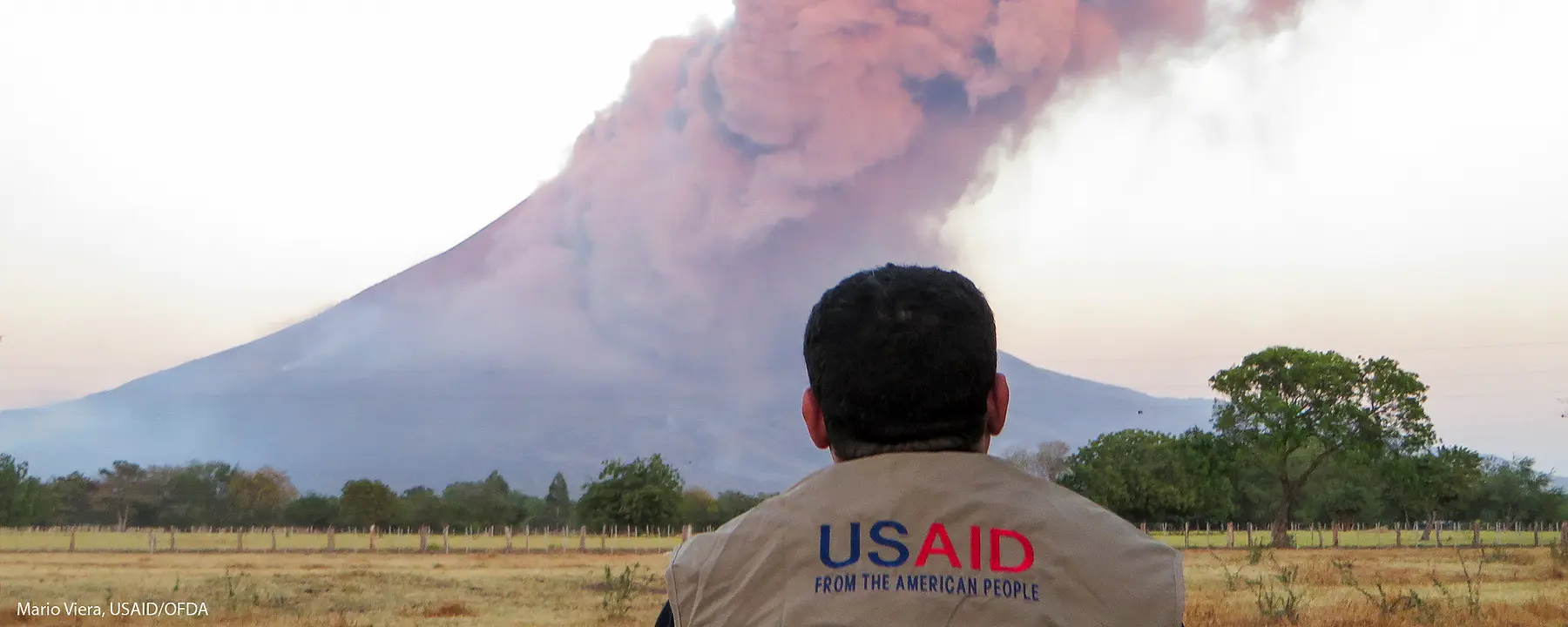Supporting the Office of U.S. Foreign Disaster Assistance
When natural or manmade disasters strike, the immediate impact can be so overwhelming that it is difficult to imagine returning to normalcy, let alone brace for the next life-altering event. Yet this is precisely what people, communities, and governments must do to build their resilience to disaster’s devastating effects and mitigate the impact of future ones.
Many countries in Latin America and the Caribbean are particularly vulnerable to hurricanes, floods, droughts, and other severe weather. Volcanic activity, forest fires, and earthquakes are prevalent in the region. Political conflict and instability also create humanitarian crises.
A critical component of USAID’s Office of U.S. Foreign Disaster Assistance’s (OFDA) program for Latin America and the Caribbean is known as the Regional Disaster Assistance Program (RDAP). RDAP provides OFDA the support to maximize response, planning, training, and risk reduction efforts in 27 countries in the region.
OFDA’s Innovative Approach to Building a Regional Network of Risk-Reduction Experts
RDAP has allowed OFDA to be flexible and efficient with its resources in the Latin America and Caribbean region. With the RDAP mechanism in place, OFDA has been able to stand up country-based experts within 24 hours of a disaster occurring, engage in long-term disaster risk reduction (DRR) planning and coordination within the region, and provide essential technical assistance and training to partner country governments and response entities. These country-based experts, known as disaster risk management specialists, are based in each of the 27 countries where the RDAP operates. They are supported by the program’s network of more than 400 surge staff throughout the region, all of whom can respond at a moment’s notice and bring vital response capabilities.
Through its work supporting OFDA’s RDAP, RTI provides content, materials, and trainers for between five and 10 sessions per month, preparing 40 to 50 participants throughout the region with new knowledge of the best practices in disaster response and preparedness in areas such as urban search and rescue (USAR) and incident command systems (ICS). Currently, the countries for which the RDAP supports disaster planning and mitigation include: Antigua and Barbuda, Bahamas, Barbados, Belize, Chile, Colombia, Costa Rica, Dominica, Dominican Republic, Ecuador, El Salvador, Grenada, Guatemala, Guyana, Haiti, Honduras, Jamaica, Mexico, Nicaragua, Panama, Paraguay, Peru, St. Kitts and Nevis, St. Lucia, St. Vincent and the Grenadines, Trinidad and Tobago, and Uruguay.
Several RDAP staff members have supported OFDA efforts for more than two decades. Team members were supporting OFDA-led efforts in 1998 when Hurricane Mitch struck Honduras, Guatemala, and Nicaragua, and when earthquakes devastated Haiti in 2010. Recently, forest fires throughout the region, a volcanic eruption in Guatemala, and political and economic crises in countries bordering Venezuela have drawn upon both RDAP’s network and OFDA’s resources.
Emphasizing Risk Reduction: A Shift to Sustainability
The most critical change over the years for the RDAP has been a shift in emphasis from disaster response to disaster risk reduction. Thanks in part to the efforts of OFDA’s RDAP program, cities, states, and countries throughout Latin America and the Caribbean now have clear plans in place that allow them to activate necessary resources after a disaster and reduce risks over time. First responders, governments, and relief organizations now have improved plans for communicating and working together.
We consider this move toward sustainability a success for the program and for the people it serves. Our recent work with OFDA to promote DRR in Ecuador is an example of this shift. In June 2018, the RDAP supported Ecuador’s first USAR mobilization exercise. Built around an earthquake scenario with real-time response requirements, the exercise included first responders from Ecuador’s firefighter’s corps, the Ministry of Health, the National Police and the National Transportation Administration. During the exercise, all emergency action plans and protocols were activated, including the deployment of USAR teams to rescue people trapped in collapsed structures. The RDAP helped to foster cross-sectoral collaboration and build the national USAR capabilities required to provide life-saving assistance.
Moving Toward a More Resilient Future
Looking ahead, we hope to continue helping OFDA build resilience in Latin America and the Caribbean through the RDAP program. Government officials and regional partners will now be able to complete online trainings in ICS using RDAP materials. Among other initiatives, we are supporting efforts of the Latin American and Caribbean University Network for DRR (REDULAC) and universities in our partner countries, such as the Colombian School of Military Engineers, to include disaster resilience in their course offerings and research.
Changes like this demonstrate the potential of the RDAP to have an even greater positive impact on disaster response and risk reduction capabilities throughout Latin America and the Caribbean. The countries we work with will never be able to stop events like hurricanes from happening, but working in coordination with the OFDA-supported RDAP program, they can help increase their ability to weather storms—and to rebuild and prepare for better days ahead.
- U.S. Agency for International Development (USAID)
- Office of U.S. Foreign Disaster Assistance (OFDA)

